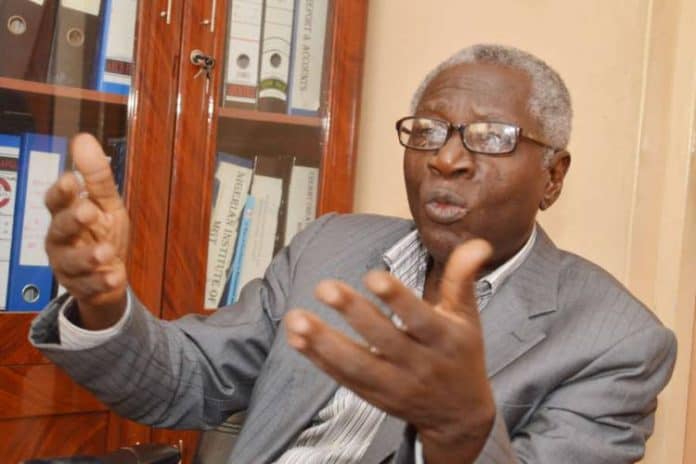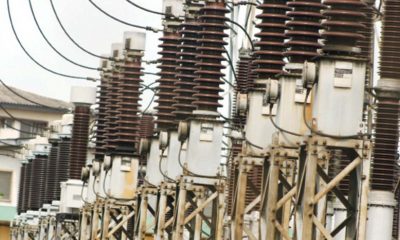Business
Negative income from PHCN sale?


Secure Nigeria 365
Public expectation for adequate and stable power supply may have been raised when President Goodluck Jonathan handed over share certificates to private investors in five generation companies (GENCOs) and ten distribution companies (DISCOs) which were created from the unbundled Power Holding Company of Nigeria (PHCN).
The investors took over 60% equity and controlling stakes in the DISCOs, while the private GENCOs, were allotted between 51 and 100% in five plants with total installed capacity of about 6000MW for their total outlay of about $3.3bn (N530bn) to the federal government.
Furthermore, for smooth take off, President Jonathan also pledged that the privatized companies will be handed over without any baggage of debts, as “all existing PHCN liabilities had been pooled together to be separately managed by the Nigerian Electricity Liability Company (NELMCO)”, a newly created agency.
The obligations to PHCN workers appear, however, to be the most critical of these liabilities, the Punch editorial of 30th September 2013, however, estimated existing workers’ liabilities at about N400bn, while also suggesting that PHCN debts to local and foreign creditors, as well as suppliers may be well over N450bn. In other words, while federal government’s total income from privatization of PHCNs generation and distribution operations will amount to less than N530bn ($3.3bn), the same government will pay out over N850bn; (i.e. incur a net loss of over N300bn), to privatize these PHCN divisions!
Worse still, with dwindling revenue from oil, government may ultimately have no other option than to increase the nation’s already crushing debt burden, by borrowing at atrocious and excessive rates around 14%, from the domestic bond market, to fund the N300bn+ net loss incurred from the sale of PHCN’s ‘DISCOs’ and ‘GENCOs’.
Curiously, therefore, despite the reported infusion of over $12bn by former president Olusegun Obasanjo, to supplement existing PHCN assets, current Power Minister, Chinedu Nebo, recently also observed that an annual average of $3.5bn (i.e $35bn) has been expended by successive governments to raise generating capacity in the last 10 years! Consequently, it seems rather awkward that after government’s massive outlay of over $40bn to improve power supply in the preceding decade, barely $3.3bn was received as payment for between 51 and 60% of the Distribution and Generation assets of the parent PHCN!!
Furthermore, despite the alleged poor state of the Power Generating companies, critics have observed that the current cost of such a 6000MW plant may well exceed $6bn, especially, if the existing extensive property and other infrastructure of PHCN nationwide are also captured as assets.
The sale of PHCN subsidiaries may, therefore be seen by some critics as a lopsided business model that does not favour Nigerians. Conversely, others may also argue that the substantial loss sustained was necessary to finally plug the huge revenue leakages and restore sanity in the business of power in Nigeria.
Other critics, including the Punch editorial earlier referenced, have, however, rightly or wrongly alleged that PHCN’s privatized assets “fell into the hands of companies with spotty records of accomplishment in the electricity business”. Such critics are concerned that the new buyers may not be able to attract the annual average investment of $10bn that the IMF projects, will be required in the next 10 years to adequately close the power supply deficits. Indeed, according to the editorial, there are indications that the new owners may experience difficulty in raising, an initial requirement, of over $3.5bn to jumpstart their operations in the short term.
Furthermore, despite government’s assurances that all outstanding labour related pay issues would be resolved before the physical handing over of the privatized companies, PHCN workers have insisted that some issues still remain unresolved; these include non-remittance of the 2% of the union deductions, as agreed; non-payment of retirees who disengaged since 2011; non-regularization of already identified casual workers; and recovery of the shortfall in terminal benefits from June 2012 till date. It is not yet clear if the payout of about N400bn to PHCN workers captured all the preceding demands.
The above notwithstanding, there is still the small constitutional issue about the application of the total proceeds from the sale of PHCN companies, directly to liquidation of outstanding obligations to workers, without prior lodgment in the federation account and proper legislative appropriation as per provisions of Section 162(1) of the 1999 Constitution! Similarly, the inevitable increase in national debt, by over N300bn being the product of PHCN’s sale, without any formal structured input from the National Assembly, may also be seen as inappropriate while the increasing burden of debt repayment will invariably oppress generations yet unborn.”
The preceding narrative, are excerpts from the above title “Negative Income from PHCN sale”, which was first published, on 30th October 2013 in this column (see www.betternigeriannow.com). Regrettably, the anticipated improvement in power supply from the sale of, the corruption ridden Power Holding Company, is yet to materialize. Furthermore, generating capacity still remains, inexplicably, below the 6000megawatts benchmark reported four years ago.
Consequently, power supply remains largely epileptic nationwide, and the issue of appropriate pricing stubbornly persists while the challenge of meter supply and the Discos controversial and oppressive estimated billing system also remain unresolved.
Nonetheless, by September this year (2017), the Power Distribution Companies were claiming that they are still owed over N67.41billion by several Departments and Agencies of government, for electricity supplied to them in the last 3 years.
Conversely, the Minister for Power, Works and Housing, Babatunde Fashola however, counter claims, that the Discos are also presently owing government over N500bn, as accumulated unremitted revenues, collected for energy supplied from power plants which were not fully paid for. Eventually, government finally agreed in October 2017 to pay the Discos about N25.99bn of the total claims, so far verified, while the balance N49.42bn (65%) yet to be verified claims were, according to the minister, apparently erroneously classified as government debt.
Although Sunday Oduntan, the Executive Secretary (Association of Nigeria Electricity Distributors) (ANED), commended government for approving the debt payment plan, he however regretted that it took three and a half years for this to be paid”; besides, according to the ANED Secretary, “it is rather odd that the plan is to use the Discos money to offset their market debt”.
“If government is owing the Discos” according to Oduntan, “Why does it want to pay their creditors?”
The ultimate question, however is, how the Discos will liquidate over N450bn still outstanding for power already supplied? Invariably, the Discos may remain as lame ducks and power will remain epileptic for as long as the present debt remains outstanding.
SAVE THE NAIRA, SAVE NIGERIANS!!









